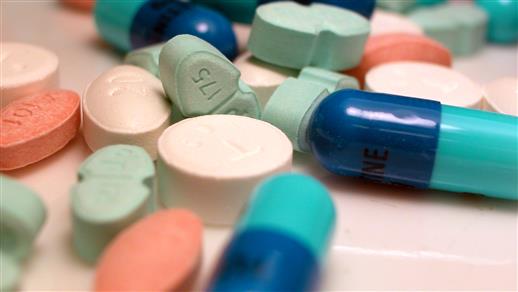Walmart, IBM, Merck, KPMG collaborate with FDA on blockchain project
by June 13, 2019 1:18 pm 834 views

Walmart, IBM, Merck, KPMG and the U.S. Food & Drug Administration (FDA) announced Thursday (June 13) they will work together to identify and track prescription medicines and vaccines distributed in the U.S.
The pilot program supports the U.S. Drug Supply Chain Security Act (DSCSA) and intends to assist drug supply chain stakeholders, including the FDA, in developing the electronic, interoperable system that will identify and trace certain prescription drugs as they are distributed.
“Our supply chain strategy, planning and logistics are built around the customers and patients we serve,” said Craig Kennedy, senior vice president of supply chain at Merck, which is known as MSD outside the U.S. and Canada. “Reliable and verifiable supply helps improve confidence among all the stakeholders — especially patients — while also strengthening the foundation of our business.”
The companies will work to create a shared permissioned blockchain network that allows real-time monitoring of products. The proposed network is intended to help reduce the time needed to track and trace inventory; allow timely retrieval of reliable distribution information; increase the accuracy of data shared among network members; and help determine the integrity of products in the distribution chain, including whether products are kept at the correct temperature, the release states.
“With successful blockchain pilots in pork, mangoes and leafy greens that provide enhanced traceability, we are looking forward to the same success and transparency in the biopharmaceutical supply chain,” said Karim Bennis, Walmart’s vice president of strategic planning and implementation, health and wellness. “Our customers also need to know they can trust us to help ensure products are safe. This pilot and U.S. Drug Supply Chain Security Act requirements will help us do just that.”
Mary Lacity, executive director for the Blockchain Center of Excellence at the University of Arkansas, recently said applications for blockchain in the pharmaceutical industry holds much potential. She said blockchain can help bring transparency to the supply chain to enhance food safety and keep tabs on the temperature control and the distribution of pharmaceuticals.
At a recent blockchain conference in Fayetteville in late March, Frank Yiannas, deputy commissioner for food policy at the FDA, said the government has a role to play in collaboration with industry to further blockchain initiatives. He said blockchain is not about the technology, but should be about the business problems it can work to solve. Yiannas spent 10 years at Walmart before joining the FDA. During his tenure at Walmart, he worked with IBM to usher in a blockchain requirement for the leafy vegetable suppliers to the retail giant.
Tejas Blatt, interim vice president of food safety & health at Walmart, recently said Walmart has had about 90% compliance with the suppliers of leafy green vegetables asked to comply with blockchain traceability in a program with IBM. He said the biggest challenge was at the farm level and Walmart has to ensure the data they add to the blockchain is accurate and immutable. Blatt said traceability back to the farm under the current federal system is up to 7 days and with blockchain that can be reduced to seconds.
The new blockchain partnership is designed to establish a permanent record and may be integrated with the existing supply chain and traceability systems.
“Blockchain could provide an important new approach to further improving trust in the biopharmaceutical supply chain,” said Mark Treshock, IBM Global Solutions Leader for Blockchain in Healthcare & Life Sciences. “We believe this is an ideal use for the technology because it can not only provide an audit trail that tracks drugs within the supply chain; it can track who has shared data and with whom, without revealing the data itself. Blockchain has the potential to transform how pharmaceutical data is controlled, managed, shared and acted upon throughout the life history of a drug.”
The pilot project is scheduled to be completed in the fourth quarter of 2019, and results are expected to be published in an FDA DSCSA program report. The project’s participants will then evaluate next steps.
“Blockchain’s innate ability within a private, permissioned network to provide an ‘immutable record’ makes it a logical tool to deploy to help address DSCSA compliance requirements,” said Arun Ghosh, KPMG Blockchain Leader. “The ability to leverage existing cloud infrastructure is making enterprise blockchain increasingly affordable and adaptable, helping drug manufacturers, distributors and dispensers meet their patient safety and supply chain integrity goals.”
